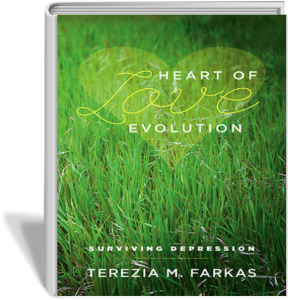Do you know what’s your emotional intelligence? Never heard of it before? Let me explain what emotional intelligence is.
Emotional intelligence is…
Emotional intelligence is your ability to perceive, evaluate, and manage emotions in yourself. It can also be used to manipulate those things in others. Some believe that emotional intelligence is a better indicator of how successful you will be than your actual IQ can predict.
How to build your emotional intelligence:
1. Learn to accept full responsibility for your emotions and actions.
Don’t blame others for what you do or how you feel unless it really is someone else’s fault. Take responsibility for how you feel. You woke up grumpy, nasty, and angry. That’s on you. It wasn’t because someone made you feel that way. Own it. Then own whatever you decide to do to either get over or past those feelings. If you decide to be a mean miserable s.o.b. for the rest of the day, own that too. Don’t shift responsibility onto someone else and start blaming that person.
Choose how you respond to daily living. That deliberate choice teaches your emotions to be smarter than they are. After all, your emotions are based on instincts, hormones, and physical contacts that create experiences for you.
2. Work on your listening skills.
Focus 100% on the person you’re interacting with. Don’t just listen to the words. Look at the person. See how the face changes, where the eyes look, how the body shifts in posture. You’ll become much better at noticing and correctly evaluating what a person is thinking and feeling.
3. Develop self-awareness.
How often do you stop to listen to your thoughts? Too busy to do that? You’re not alone. Few people actually listen to their inner voice. So many distractions keep us from hearing what our soul is saying.
It’s often called intuition, but really, its listening to your soul. After all, your soul knows what’s really going on. It’s not fooled by fear, guilt, anger, trauma, or hate. Your soul also knows the choices ahead of you, and the consequences of the decisions you’ll make. So you owe it to yourself to take a bit of time each day and listen to what your intuition, your soul, is saying. Are you choosing your behaviours in an intelligent way consistent with the nature of your soul, or are you allowing others to push your buttons?
4. Learn to effectively deal with your impulses.
Impulses aren’t always bad. But impulses can lead you to make bad choices when you’re angry, frustrated, or afraid. Impulses shift control away from the brain onto the body. Your thoughts aren’t in control. This is the dangerous behaviour that can cause self harm, attempt suicide, or hurt someone.
Notice when you are behaving in an impulsive way. Try to slow down and start thinking. What’s a better choice? Is there someone who can help you? Where can you go for help?
Ask as many questions you can to start slowing down your body’s instincts and start gearing up your thinking. Don’t react in a knee-jerk reflex. Avoid lashing out when someone hurts your feelings. Think it through. Can you handle the situation differently? Do you simply need some time out?
5. Increase your empathy.
A person with developed emotional intelligence usually has high empathy towards others. That means the person recognizes and understands the emotions of others. Say someone is angry. If you’re empathetic you recognize the anger, but you also see beyond that emotion. You see what is the cause, what an appropriate response should be, and possible solutions. You can help ease the person out of the anger state and into a more relaxed, calm mood.
A simple way of learning to be empathetic is this:
Ask yourself how you would like to be treated if you were feeling the same emotions.
Then concentrate on finding solutions.
Refrain from getting angry or defensive.
Now you’ll be able to make intelligent decisions and view yourself and others objectively.



